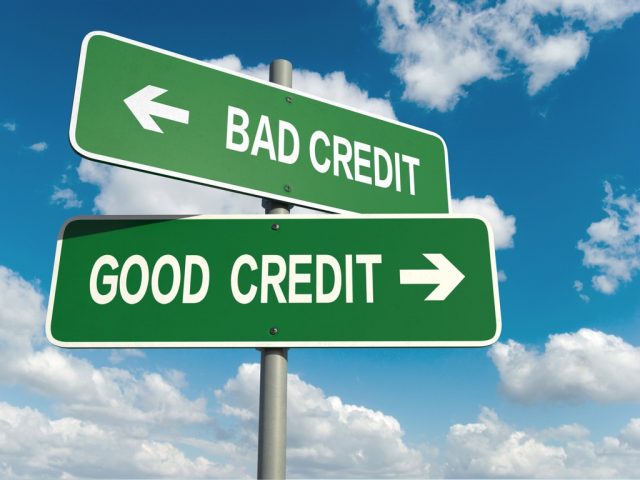Protect Your Personal Credit

Brighten Your Smile with a Free Dental Checkup
September 9, 2020
Calling All Job Hunters! Virtual Job Boot Camp Scheduled for Sept. 29
September 9, 2020By Lori Mann, AFC®, FFC®
Summit County VSC Financial Consultant
Over the past few months, many Americans, including Veterans, have experienced unusual financial circumstances as a result of COVID-19. It’s a good time to assess your own financial health and, when possible, take advantage of timely opportunities to protect yourself during uncertain times.
Free credit reports
The good news: now through April 2021, you can get free weekly credit reports at https://www.annualcreditreport.com. This is an important way to make sure your finances are in good order, which is particularly important if you need to open new lines of credit or apply for loans.
But be careful! There are always potential scammers out there trying to gather your personal information, so don’t trust just any service that offers free reports. AnnualCreditReport.com is a legitimate source.
Frequently asked questions
Here are some of the most common questions asked about credit reports.
What do credit reports show?
Your credit reports, which come from three agencies (Experian, Transunion, and Equifax), will show:
- Names by which you have been known
- Your current and previous addresses, telephone numbers and employers
- Certain information available from public records
- Credit inquiries
- Credit activity
- Credit and payment history
- Credit status (open/closed, paid on time and/or late payments, etc.)
How do credit reporting agencies get my information?
Experian, Transunion and Equifax each obtain your information through lenders, service providers (e.g., the telephone company) and from public records. If you have a legal judgment or conviction on your record, this may appear on your credit reports.
What information determines a credit score?
A credit score is derived from five different factors, each weighted differently, including:
- Payment history – timeliness of bill payments
- Utilization – credit balance/credit limit ratio
- Length of credit – how long accounts have been open
- Type of credit – mortgages or retail credits
- New credit – recent activity, such as loan applications and new debt
Why are my credit scores from each agency different?
Lenders may or may not report with the credit reporting bureaus, which will obviously create some differences in your scores. When all three credit reports are pulled, you may find a debt on one report and not the others. This is dependent on lenders’ business practices for reporting. Scoring methods may also differ from each credit reporting agency based on their own calculations of credit worthiness.
What information should I be using to verify my account information?
Although the reports will appear differently, most of the identifying information is the same. On each report, be sure to:
- Check the spelling of your name(s)
- Check the DOB and SSN information
- Check all the addresses – did you live there?
- Check all the telephone numbers – are they yours?
- Check the hard inquiries – did you apply for this?
- Check each and every account – are they yours?
Once you have reviewed this information, if anything does not belong to you – i.e., a relative’s telephone number appears instead of yours – contact your creditor immediately to correct or dispute it. There are instructions on each credit report showing you how to dispute incorrect information and the steps to correct it.
How long does a negative account affect my credit rating?
Most consumer debts have a set timeline of seven years or, if the account is in collections, seven years and six months from the date of the final payment. There are exceptions, including for certain types of bankruptcies. You can learn more here.
You can also include a brief statement in your credit report to explain bad credit, but be sure to do so cautiously and only if you feel it is absolutely necessary. Learn more here.
Due to a divorce decree, my ex-spouse was required, but failed, to pay an account, which is damaging my credit score. Why did this happen?
Joint accounts can create problems, and in this example, you were likely a co-signer. Although your ex-spouse was ordered to pay the account, the order does not eliminate your personal responsibility with the lender. The lender, who considers you the co-signer, may report any delinquency. You can always personally discuss or take formal action to enforce compliance of the agreement with your ex-spouse, but your responsibility as co-signer will continue to be reported until the account is paid off or drops from your report after the appropriate amount of time.
Bonus Question: What is the difference between a FICO score and a credit score?
FICO (the Fair Isaac Corporation) uses a proprietary model that scores on a 300-850 point scale. Credit reporting companies, such as Equifax, Transunion and Experian, also use their own proprietary models, but with scores that range from 280-850. FICO and all three credit agencies assess risk but, because they are each independent, will assess that risk differently, which factors into your report showing different scores. You can learn more about this here.
Remember these are only some of the most common questions and there is much more to managing credit than is discussed here. If you have additional questions or would like to meet with personal financial consultant, Lori Mann, please call (330) 564-8030 for an appointment.



